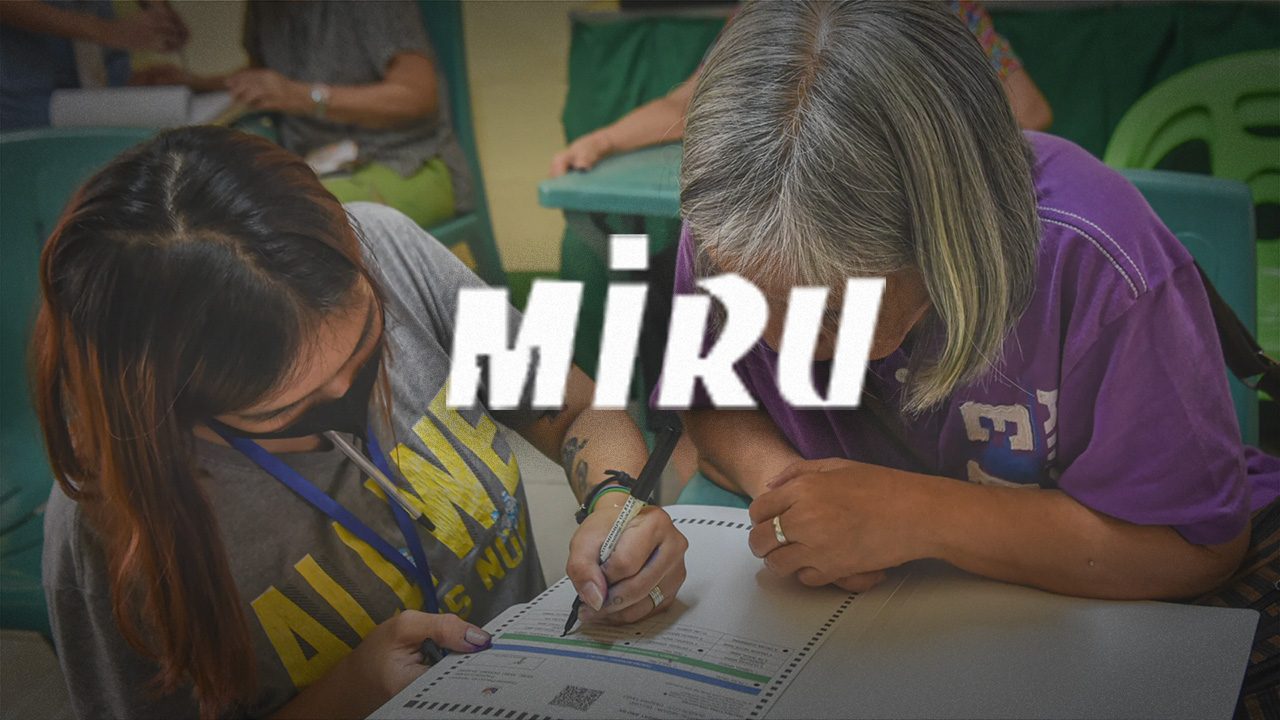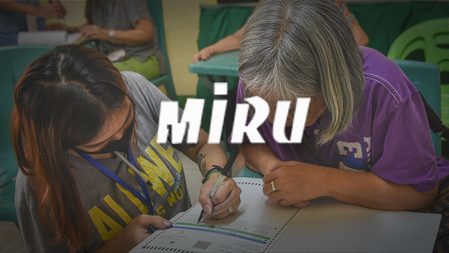SUMMARY
This is AI generated summarization, which may have errors. For context, always refer to the full article.

(EDITOR’S NOTE: An earlier version of this story said Miru Systems was established in 1997. It has been corrected to reflect the correct year, 1999.)
MANILA, Philippines – As the Commission on Elections (Comelec) opened the bidding for the multi-billion-peso contract that would reshape the conduct of the 2025 automated elections, only one company submitted a bid that was accepted by the poll body in December 2023 and January 2024.
That firm is named Miru Systems, an election tech provider based in South Korea that was established in 1999, based on its website.
It claims to “provide the best electronic voting system that is user-friendly, secure, transparent, and accurate,” although it has a rocky history overseas.
Miru showed interest in Philippine elections in the past.
This is not the first time Miru attempted to become an election software provider in the Philippines.
In 2014, Miru bought bidding documents for the Comelec’s lease of new vote-counting machines, but it ended up not submitting a proposal due to time constraints in completing its documents.
In March 2023, it participated in the national Comelec summit to present its election technology, and in July, the company was among eight tech providers that pitched its online voting software for overseas Filipinos.
For its bid, Miru is partnering with local firms.
Miru submitted a P17.988-billion bid proposal for the Comelec’s full automation system with transparency audit count (FASTrAC) project which has a maximum budget of P18.827 billion. The contract up for grabs includes 110,000 automated counting machines, 104,345 ballot boxes, 73.8 million ballot papers, and the canvassing system.
Comelec spokesman Rex Laudiangco said Miru has entered into a joint venture with three local firms, namely:
- Integrated Computer Systems
- St. Timothy Construction Corporation
- Centerpoint Solutions Technologies Inc.
Miru has faced election issues abroad.
Miru has provided election systems in numerous countries.
In South Korea, its home country, Miru developed a touch-screen system, voter identification, and voter verification system which has been used by the Korea National Election Commission for party primaries, union elections, university elections and consignment elections, according to its website.
Miru has also deployed machines to Democratic Republic of Congo, Kyrgyzstan and Iraq, “countries that can be considered struggling democracies,” as described by Korea Herald.
The Sentry, an anti-corruption watchdog focused on African issues, published a 2018 report on Miru, raising some concerns and allegations:
- That, as per independent researchers, the machines Miru tried to sell in Congo were repackaged equipment originally intended for Argentina, where similar machines faced pushback, and where the e-voting law ultimately failed to pass;
- That the company’s technology was prone to hacking and threats to ballot secrecy, according to Washington-based Center for Democracy and Technology chief technologist Joseph Lorenzo Hall.
Miru, however, fired back at that report, and an executive was quoted by The Washington Post as saying “security concerns raised are not real as the author of the paper seems to have taken facts only from pictures seen and published.”
The South Korean government distanced itself from Miru Systems when the issue on the “cheating machines” during Congo’s election emerged.
The government of Congo used Miru’s technology for the 2018 presidential, legislative, and provincial elections, as well as the senatorial and gubernatorial election the following year.
A 2018 Reuters report also said that in Iraq, Miru’s machines were “at the heart of fraud allegations that led to a manual recount in some areas after the May 12 election.”
“Concerns about the election count center on discrepancies in the tallying of votes by the voting machines… and suggestions that the devices could have been tampered with or hacked into to skew the result,” the report read, although Miru brushed aside the hacking allegations.
On January 16, Miru also emailed this statement to Rappler: “The allegations of election failures due to Miru’s technology are false, as the company designs, develops, and manufactures secure electoral systems that are of international standard.”
“The government of Iraq and the Democratic Republic of Congo have been using our machines for several consecutive elections since 2018, and have continued to show trust in our technology even after their administrations and ruling parties have shifted. The election committee of DR Congo provided us a certificate of satisfaction following their elections, and there were also third-party organizations such as the United Nations Assistance Mission for Iraq observing all elections in Iraq and declaring them as fair and successful,” it added.
Miru winning the whopping contract is not yet a done deal.
Just because Miru was the only company which tendered a bid does not guarantee yet its success in securing a contract, although it has inched closer into doing so.
During the first round of bidding in December, the Comelec declared failure because Miru was unable to fully comply with the documentary requirements.
During the second round of bidding in January, Miru overcame such deficiencies and passed the eligibility check.
The company offered to do the election project for P17.988 billion, and the Comelec subsequently recognized it as the “single, calculated bid.”
Miru is now undergoing a post-qualification evaluation, in which its documents will be evaluated beyond face value, and its capability to comply with technical requirements will be assessed.
The post-qualification evaluation stage is the last step before the company is awarded the multi-billion-peso contract.
Smartmatic, the Philippines’ longtime poll tech supplier, tried to submit a bidding proposal twice, but the Comelec rejected it due to the commission’s disqualification order against the company, which stemmed from its alleged involvement in a 2016 bribery scheme. The firm is contesting the commission’s decision. – with reports from Juliana Talde/Rappler.com
Juliana Talde is a news reporter for Archers Network, the premiere online television network of De La Salle University Manila. She is also currently an intern for Rappler.
Add a comment
How does this make you feel?

There are no comments yet. Add your comment to start the conversation.